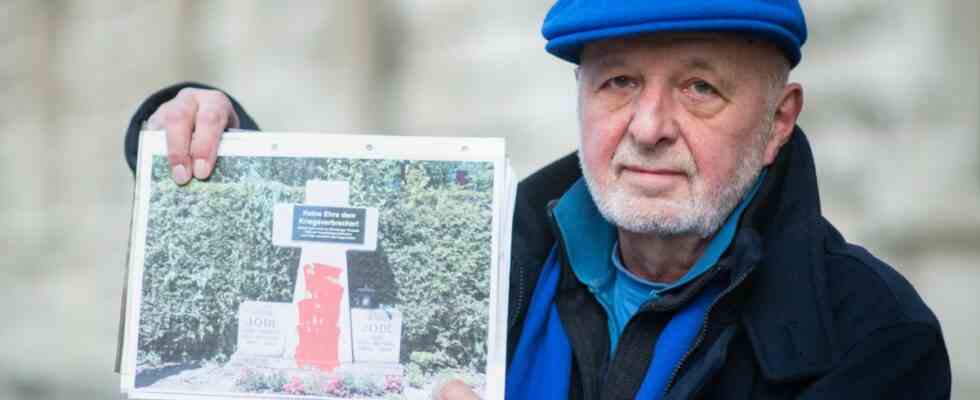In his fight against the tomb of the Nazi general and war criminal Alfred Jodl on the Fraueninsel in Chiemsee, performance artist Wolfram Kastner turned to the European Court of Human Rights. According to the complaint he published himself, Kastner sees his artistic freedom violated, since German courts have convicted him of theft and damage to the tomb.
Among other things, Kastner removed the letter J from the controversial grave cross in 2015 and sent it to the German Historical Museum in Berlin. The only thing left to be read on the cross, which Kastner later covered with blood-red paint, was “Odl”, the Bavarian word for manure. Several instances had found Kastner guilty of these actions and, in his opinion, disregarded artistic freedom. A corresponding complaint to the Federal Constitutional Court was not accepted for decision last March.
Kastner’s actions often revolve around dealing with the German Nazi past and repeatedly lead to legal sequels in court. Only Jodl’s two wives and other relatives lie in the grave on Fraueninsel. Alfred Jodl, who was sentenced to death as a major war criminal in the Nuremberg trials, was executed in 1946 and his ashes were scattered in a side arm of the Isar. Nevertheless, the central cross of the tomb on the Fraueninsel bears his name, which is now covered by a stone slab.

